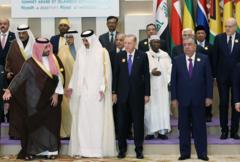
Forty years after the original recording, the charity single “Do They Know It’s Christmas?” is being re-released, reigniting debates about its portrayal of Africa and humanitarian fundraising.
In 1984, musicians Bob Geldof and Midge Ure created the Band Aid single in response to the Ethiopian famine, bringing together top British and Irish musicians to raise awareness and funds. The song and subsequent Live Aid concert became landmark moments in celebrity fundraising.
However, the track has faced increasing criticism for its stereotypical and potentially harmful representation of Africa. Dawit Giorgis, an Ethiopian official involved in the 1984 famine response, finds the lyrics insulting, pointing out that Ethiopia was a Christian country long before England. Despite his criticism, he acknowledges that the philanthropic response saved lives.
Modern critics, including artists like Ed Sheeran and Fuse ODG, have voiced concerns about the song’s narrative. Fuse ODG argues that the song perpetuates a negative view of Africa, suggesting there’s no peace or joy on the continent. He and others argue that the portrayal has had lasting psychological impacts, making it “not cool to be African” in places like the UK.
The imagery associated with the song and similar fundraising efforts has been particularly problematic. The original single’s artwork featured gaunt Ethiopian children in stark contrast to colorful Christmas scenes, while subsequent versions continued to use images of skeletal, suffering Africans.
Organizations like Bond have been vocal in their criticism, arguing that such initiatives perpetuate racist and colonial attitudes that strip people of their dignity. Researchers and academics have highlighted the need for a more nuanced, respectful approach to humanitarian fundraising.
The landscape of charitable communication has been changing. There’s a growing push to represent people in crisis as human beings first, not just victims. Initiatives like Radi-Aid have used humor to challenge stereotypical representations, and more charities are adopting ethical guidelines for their campaigns.
Experts suggest that future fundraising efforts should:
– Center African artists and voices
– Avoid savior narratives
– Focus on the humanity of those being helped
– Involve communities in telling their own stories
Bob Geldof remains defensive of the song, arguing that “this little pop song has kept hundreds of thousands if not millions of people alive.” The Band Aid Trust continues its work, recently providing £3m in aid to people in Ethiopia, Sudan, Somaliland, and Chad.
Music journalist Christine Ochefu suggests that any modern equivalent would need to involve African artists like afrobeats or amapiano performers, moving away from the previous approach.
As Dr. Edward Ademolu concludes, it may be time to “start anew – a fresh tune where Africa isn’t just a subject, but a co-author, harmonising its own story.”








